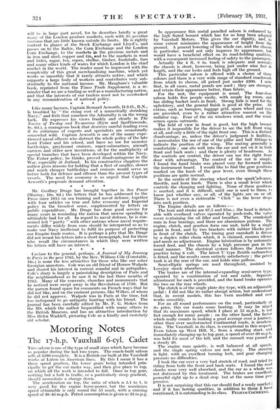Like many laymen, Captain Bernard Acworth, D.S.O., R.N., is troubled
by the rising cost of a numerically shrinking Navy," and feels that somehow the Admiralty is on the wrong tack. He expresses his views frankly and clearly in The Navies of To-day and To-morrow (Eyre and Spottiswoode, 8s. 6d.), a courageous book that deserves careful reading even if its criticisms of experts and specialists are occasionally somewhat wild. Captain Acworth is one of the many expe- rienced naval officers who distrust the whole policy of the late Lord Fisher and his school, and have no use for monster battleships, greyhound cruisers, super-submarines, aircraft carriers and other new inventions, or for the multiplicity of special branches that have been developed within the Navy. The Fisher policy, he thinks, proved disadvantageous in the War, especially at Jutland. In his constructive chapters the author gives reasons for holding that a fleet of smaller, slower and much cheaper battleships and cruisers would serve us better both for defence and offence than the present types of vessels. The need for economy is so urgent that Captain Acworth's proposals demand attention.











































 Previous page
Previous page